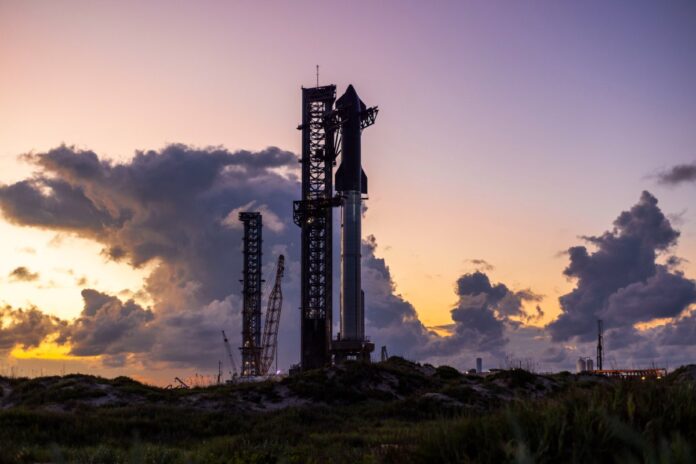SpaceX is ramping up its Starship test flight program, with the upcoming rocket launch set to showcase payload deployment for the first time.
The payload will consist of 10 Starlink “simulators” designed to mimic the size and weight of the next-gen satellites SpaceX plans to deploy using Starship. These model spacecraft will follow the same trajectory as the upper stage, known as Starship, and will land in the Indian Ocean.
The operational V3 version of these satellites is expected to be the first true payloads for Starship. The successful integration of Starship is crucial for SpaceX’s goal to accelerate the deployment of its Starlink satellite constellation and reduce the launching costs per satellite. SpaceX currently uses the Falcon 9 rocket to launch Starlink satellites, but the V3 satellites are anticipated to be much heavier than the current V2 Mini satellites. With Starship’s high payload capacity, SpaceX plans to deploy 60 V3 satellites per launch, adding 60 terabits per second of capacity to the Starlink network.
This translates to over 10 times the downlink and 24 times the uplink capacity per satellite compared to the V2 Mini satellites.
In a blog post ahead of the seventh test launch scheduled for later this month, SpaceX announced several upgrades to the rocket. These enhancements include improvements to the propulsion system, avionics, and heat shield, aimed at enhancing reliability and performance. During this test, SpaceX will also attempt to recover the Super Heavy booster, a feat the company achieved for the first time in October’s fifth test launch.




